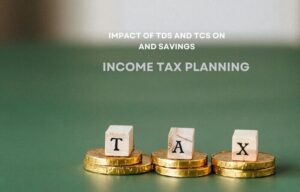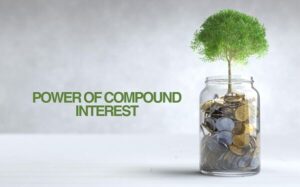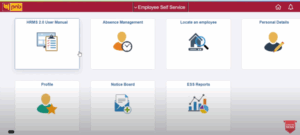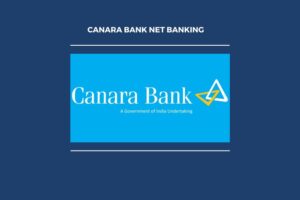Refinancing or Debt Settlement for Managing Debt in Today’s Rate Climate

In an environment where interest rates are steadily climbing, managing debt effectively has become more crucial than ever. Choosing between refinancing and debt settlement could significantly impact your financial future. This article examines these two strategies, helping you make informed decisions tailored to your financial goals.
With interest rates on the rise, consumers are feeling the pinch in their monthly budgets. Navigating this high-rate environment requires strategic decisions about managing existing debt. Refinancing and debt settlement are two viable options that can help align your financial strategy with your personal goals. This article explores these concepts to equip you with the knowledge needed to make informed choices.
Refinancing Explained
Refinancing involves replacing an existing loan with a new one, typically offering a better interest rate or more favorable terms. This option is popular among those with mortgages, auto loans, or high-interest credit card balances. By securing a lower interest rate, refinancing can help reduce monthly payments and overall financial burden.
The potential advantages of refinancing are notable. Lower monthly payments can provide immediate financial relief, making it easier to manage other expenses. Additionally, you may achieve long-term savings through reduced interest rates over the life of the loan.
However, refinancing isn’t without its drawbacks. Closing or origination fees could reduce or negate potential savings. Furthermore, opting for lower monthly payments might extend your repayment timeline, keeping you in debt longer than anticipated.
When considering refinancing in today’s market, timing plays a crucial role. Market analysts suggest watching for rate dips and having all documentation prepared in advance to capitalize on favorable conditions. Many borrowers find success by setting up rate alerts with multiple lenders and maintaining regular communication with their financial advisors to identify optimal refinancing windows. Additionally, some lenders offer rate-lock options that can protect borrowers from further rate increases during the application process.
Debt Settlement Overview
Debt settlement involves negotiating with creditors to accept less than the full balance owed, primarily targeting unsecured debts like credit cards and personal loans. This approach can significantly reduce the principal amount owed if successfully executed.
The primary advantages of debt settlement include substantial debt reduction and a quicker resolution path for those facing persistent financial strain. By settling debts for less than what is owed, individuals may find relief from unsustainable financial cycles.
However, there are downsides to consider. Engaging in debt settlement often impacts your credit score negatively because you’re not repaying the full amount. Some approaches also require fees or maintaining a separate account for negotiations, which can complicate matters further.
Finding the Best Debt Relief Options
Researching and comparing various options is key when seeking effective debt relief strategies. Speaking with multiple lenders or financial experts before refinancing can help you understand and discover the best debt relief options .
Professional debt negotiators may offer clarity on the settlement process for those overwhelmed by ongoing collection efforts. Reliable resources such as the Consumer Financial Protection Bureau (CFPB) or Federal Trade Commission (FTC) provide guidance on various debt-related topics. Discover the best debt relief options by consulting informative websites that offer structured plans tailored to individual needs.
Evaluating Personal Financial Goals
When considering either refinancing or debt settlement, it’s crucial to assess your current situation thoroughly. Look at factors such as interest rates, outstanding balances, and your monthly budget to determine which strategy aligns best with your needs.
Your credit score plays a vital role in this decision-making process. Refinancing typically requires a good credit score to secure favorable rates, whereas debt settlement might initially lower your score but offer a fresh start once completed successfully.
Additionally, assessing your budgeting and cash flow is essential before committing to either option. A realistic budget can help you identify whether a structured settlement plan or a refinanced loan better suits your circumstances.
Realistic Examples and Data
Interest rate trends greatly affect your choice between refinancing and debt settlement. For instance, if average credit card rates are high, both options could offer relief depending on your credit history and specific circumstances.
A household carrying significant credit card debt at high interest might explore consolidating into a secured loan with lower rates. An alternative may involve pursuing a lump-sum settlement to reduce the overall amount owed.
Read More: How to Build a Strong Financial Foundation to Achieve Financial Success
Additional Considerations
Before deciding between refinancing or debt settlement, consider critical factors like total costs, credit impact, and timelines for completion. Reflect on potential life changes such as job transitions or significant upcoming expenses that could influence your decision.
Be aware of potential legal or tax implications associated with forgiven debt; some portions might be treated as taxable income. Maintaining open communication lines with creditors and lenders is essential throughout this process.
Both refinancing and debt settlement offer valuable strategies depending on individual needs and credit standing. Continue researching options available to you while seeking professional advice if necessary. By maintaining financial discipline in today’s high-rate environment, you can navigate your way to achieving fiscal stability.

Pranab Bhandari is an Editor of the Financial Blog “Financebuzz”. Apart from writing informative financial articles for his blog, he is a regular contributor to many national and international publications namely Tweak Your Biz, Growth Rocks ETC.






